

News
author:GCC
The Strategic Advisory Committee (SAC) of the Global Computing Consortium has been officially established, guiding a new direction for the development of the global computing industry.
On April 18, 2025, a significant moment arrived in the global computing industry - the inaugural meeting of the Strategic Advisory Committee (SAC) of the Global Computing Consortium (GCC) was successfully held in Shenzhen. In the current surging wave of global digitalization, computing technology, as the core driving force for the transformation and innovation of various industries, is reshaping the world's economic and social landscape. The establishment of the Strategic Advisory Committee of the Global Computing Consortium (GCC) has drawn widespread attention.
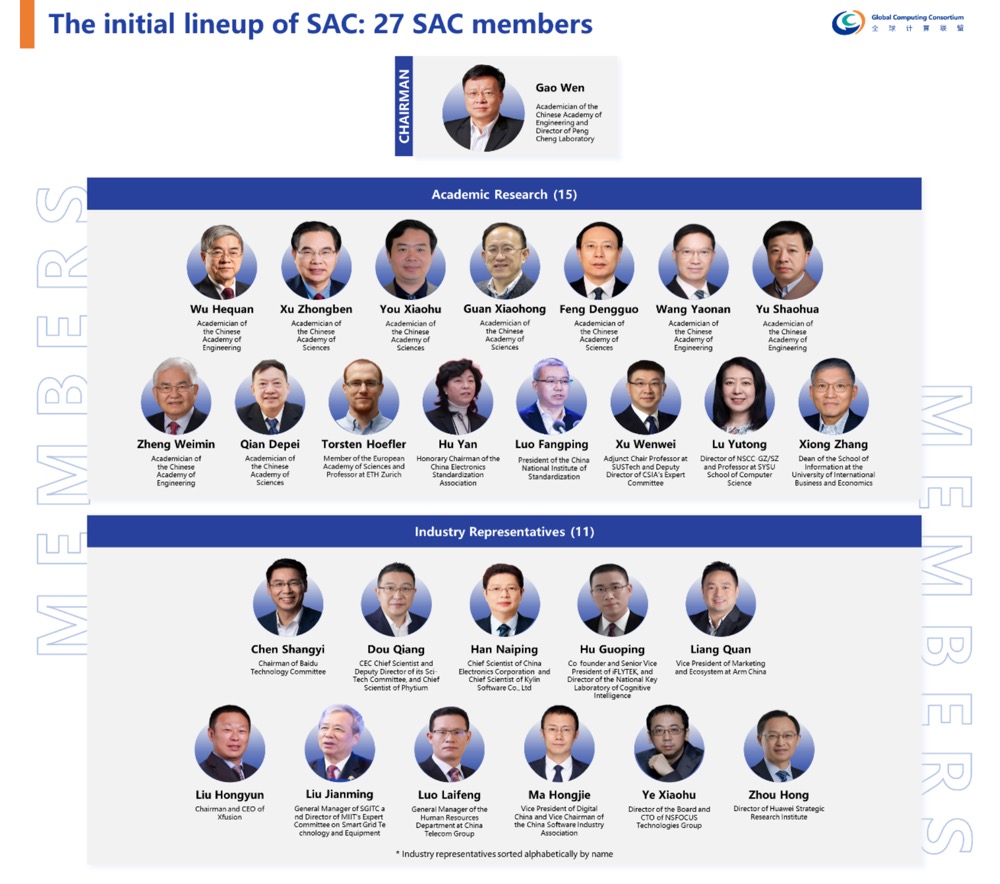
Picture: The initial lineup of SAC: 27 SAC members, covering academic research, research institutions, and industry representatives
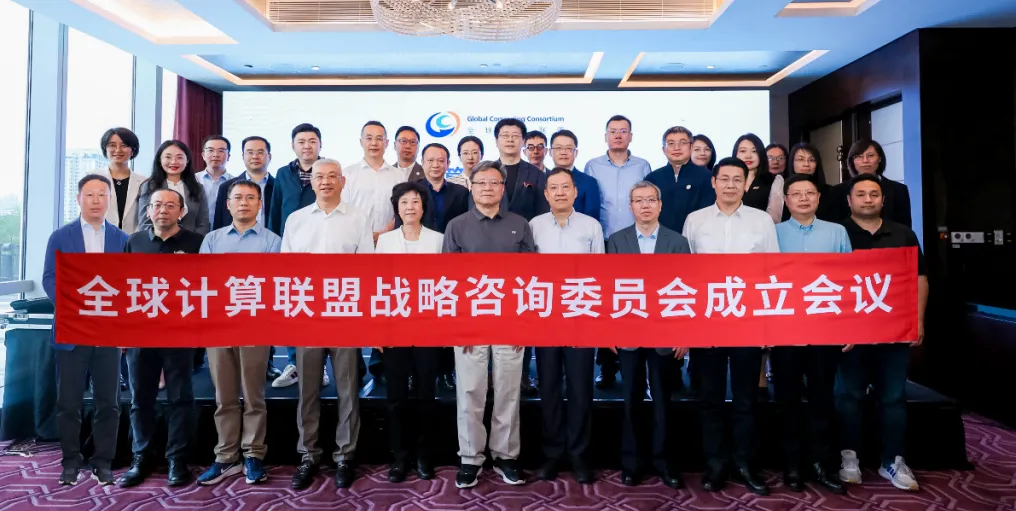
Picture: The inaugural meeting of the Strategic Advisory Committee (SAC) of the Global Computing Consortium (GCC) was successfully held in Shenzhen
I. Welcome Speech: The Three Missions of SAC –Collaborating to Co-build a New Ecology for the Digital and Intelligent Society
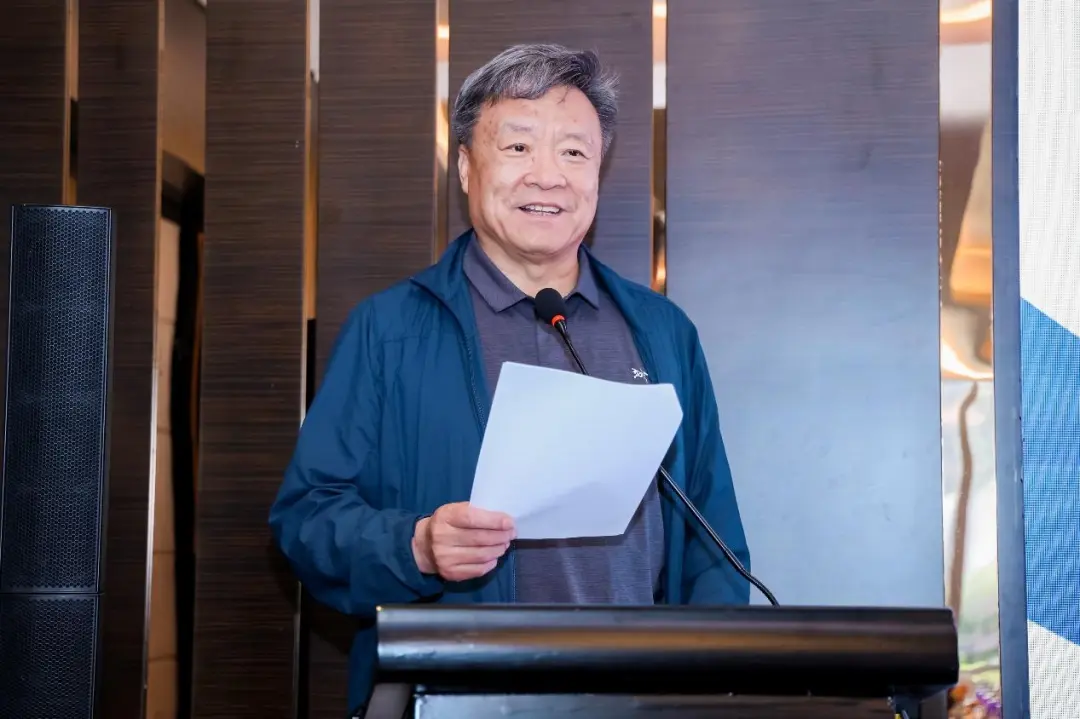
Picture: Mr. Gao Wen, Chairman of GCC SAC, Academician of the Chinese Academy of Engineering, and Director of the Peng Cheng Laboratory, delivered a welcome speech at the inaugural meeting
At the beginning of the meeting, Mr. Gao Wen, Chairman of SAC, Academician of the Chinese Academy of Engineering, and Director of the Peng Cheng Laboratory, delivered a welcome speech. He stated that currently, computing power has become the core engine of the new productive forces, and the innovation of global computing technology is accelerating the reshaping of the industrial landscape. He emphasized that during the critical development period of the Global Computing Consortium, the establishment of SAC has become the core practice for realizing the vision of "Empowering the digital and intelligent society through state-of-the-art computing" Next,SAC will consolidate expertise from industry, academia, and research towards three missions: (1) Championing global industry advocacy through forward-looking perspectives as a ‘watchtower’ for technological revolutions.Second, it is committed to policy guidance and offering suggestions. Insisting on practical advice, it will act as the "breaker of the situation" for industrial development. Third, it is committed to the alliance's strategy and ecological empowerment. Adhering to cross-border collaboration, it will serve as the "connector" for ecological symbiosis. At the same time, three working mechanisms of efficient decision-making, result-oriented, and dynamic evaluation will be established simultaneously. Academician Gao Wen also pointed out at the end that the establishment of SAC marks the computing industry's entry into a new stage of collaborative innovation and called on all sectors to deepen cooperation and jointly promote digital and intelligent transformation.
II. Inauguration Ceremony: Top Think Tanks Assemble to Outline the Strategic Coordinates
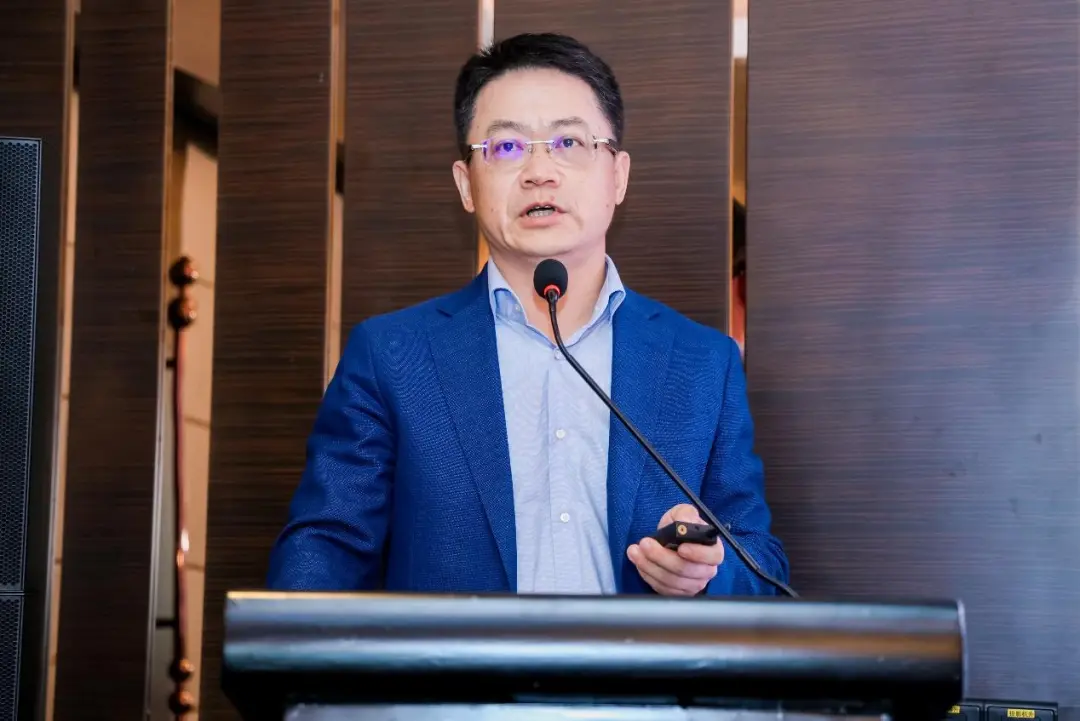
Picture: Dr. Peng Peng, Director and Secretary-General of GCC, introduced the development of the Global Computing Consortium and read out the resolution on the establishment of SAC
At the meeting site, Dr. Peng Peng, Secretary-General of GCC, read out the resolution on the establishment of SAC and presented the plaque. Academician Gao Wen, Chairman of SAC, issued certificates to the representatives of the first batch of SAC members. The lineup of SAC members covers the entire chain of academic research, government think tanks, and industry representatives in the computing industry. Subsequently, Zhou Jiaying, Executive Secretary-General of SAC, provided a detailed introduction to key contents such as the organizational structure, operation mechanism, and working regulations of SAC.
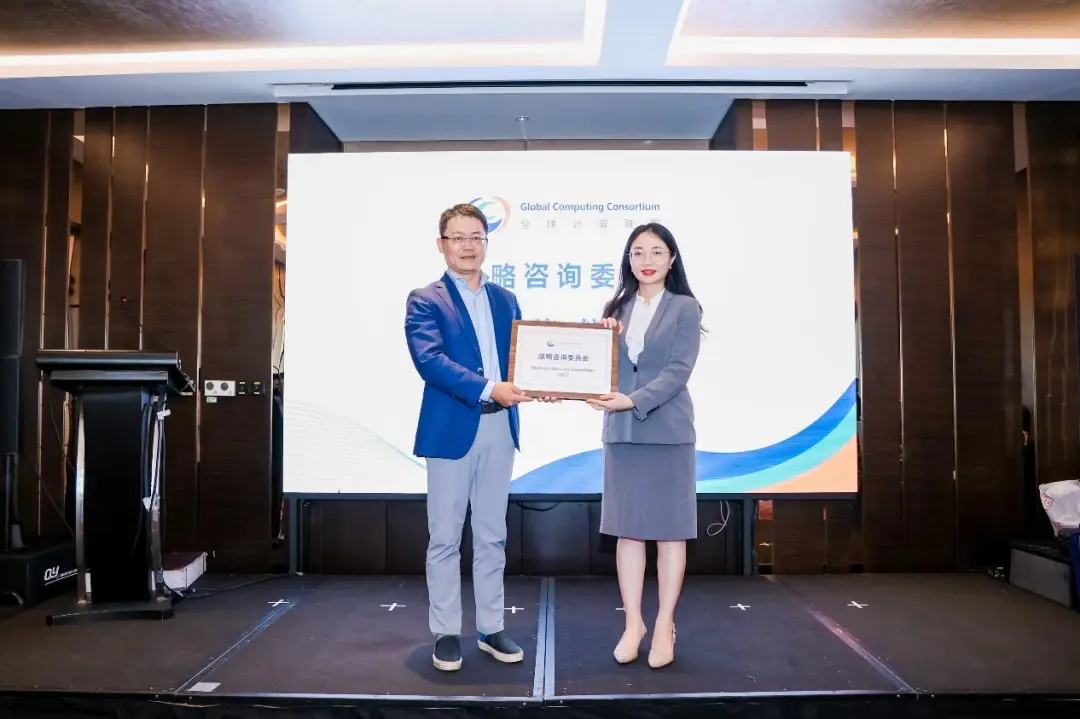
Picture: The plaque-awarding ceremony of the GCC Strategic Advisory Committee (SAC)
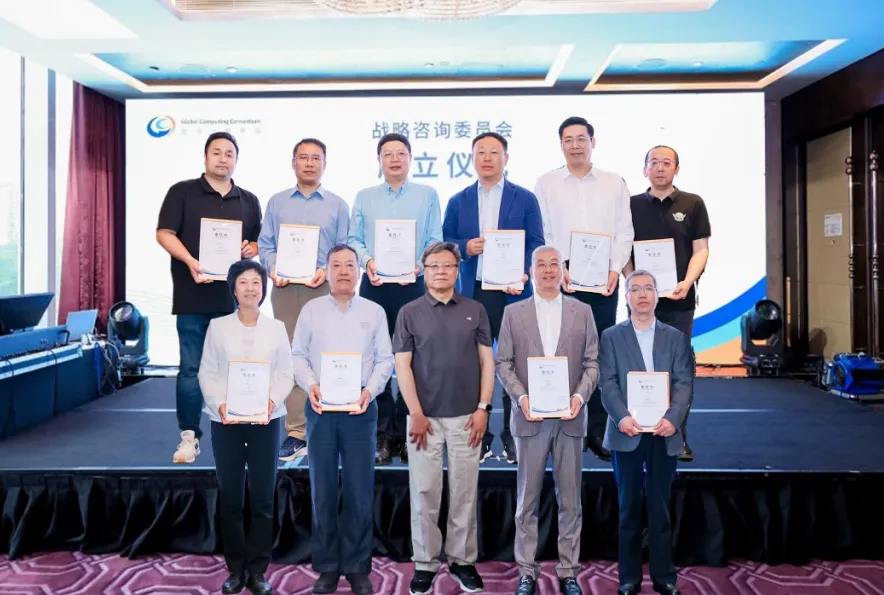
Picture: At the meeting site, Academician Gao Wen, Director of SAC, issued certificates to the committee member representatives
III. Special Discussions: Focusing on Technological Evolution and Globalization Paths
The special discussion sessions during the meeting were full of highlights. In the special topic of "The Road of Generational Evolution of Computing," the SAC members focused on the feasibility of the generational division of computing technology and its impact on the industry, the scientific nature of the demarcation methods, the direction selection of the definition of generational indicators, as well as the industrial opportunities, risks, and coping strategies under the current and future development of computing technology. Everyone expressed their opinions freely and had heated discussions, conducting in-depth analyses from multiple dimensions, providing rich ideas and forward-looking thinking for the development of the computing technology industry.
The meeting pointed out that currently, computing technology is still within the framework of the Very Large Scale Integration (VLSI) generation, and there has been no disruptive change in its essential architecture. However, the in-depth evolution of technology has given rise to several waves of "wave of iterative innovation within the VLSI generation" innovation. It is recommended that, facing the needs of application scenarios, flexible division of "wave of iterative innovation within the VLSI generation" should be carried out through different coordinate systems and granularities to guide the innovation of global computing architectures and technologies and provide strategic support for policy guidance.
In the special discussion of " How can GCC better support the computing industry's globalazation" the SAC members actively shared their insights based on the global economic situation and the current status of the computing industry. The on-site experts jointly discussed how to strengthen international technical exchanges and cooperation, attract high-quality global computing resources, and at the same time, promote the advantageous technologies and products of the domestic computing industry to the international market, enhancing the collaborative development level of the global computing industry.
The meeting pointed out that the internationalization of GCC should use technology as the link, business as the driving force, and standards as the bridge to build a global computing community with a non-zero-sum collaboration. In the short term, potential can be accumulated through regional ecological pilots. In the medium and long term, open-source collaboration and mutual recognition of standards should be used as the fulcrum to promote the formation of a new paradigm of multi-polar technological governance.
IV. Looking to the Future: Driving the Digital and Intelligent Future with Systematic Thinking
The establishment of the Strategic Advisory Committee of the Global Computing Consortium is a new starting point for the development of the global computing industry. Under the leadership of SAC, the global computing industry is expected to achieve new breakthroughs in technological innovation, industrial collaboration, and policy support, injecting a continuous stream of impetus into the global digital transformation and promoting the continuous optimization of the world's economic and social landscape.
Thank you for your continued attention to GCC and SAC.
Contact person:
Zhou Jiaying, Executive Secretary-General of SAC
zhoujiaying@gccorg.com